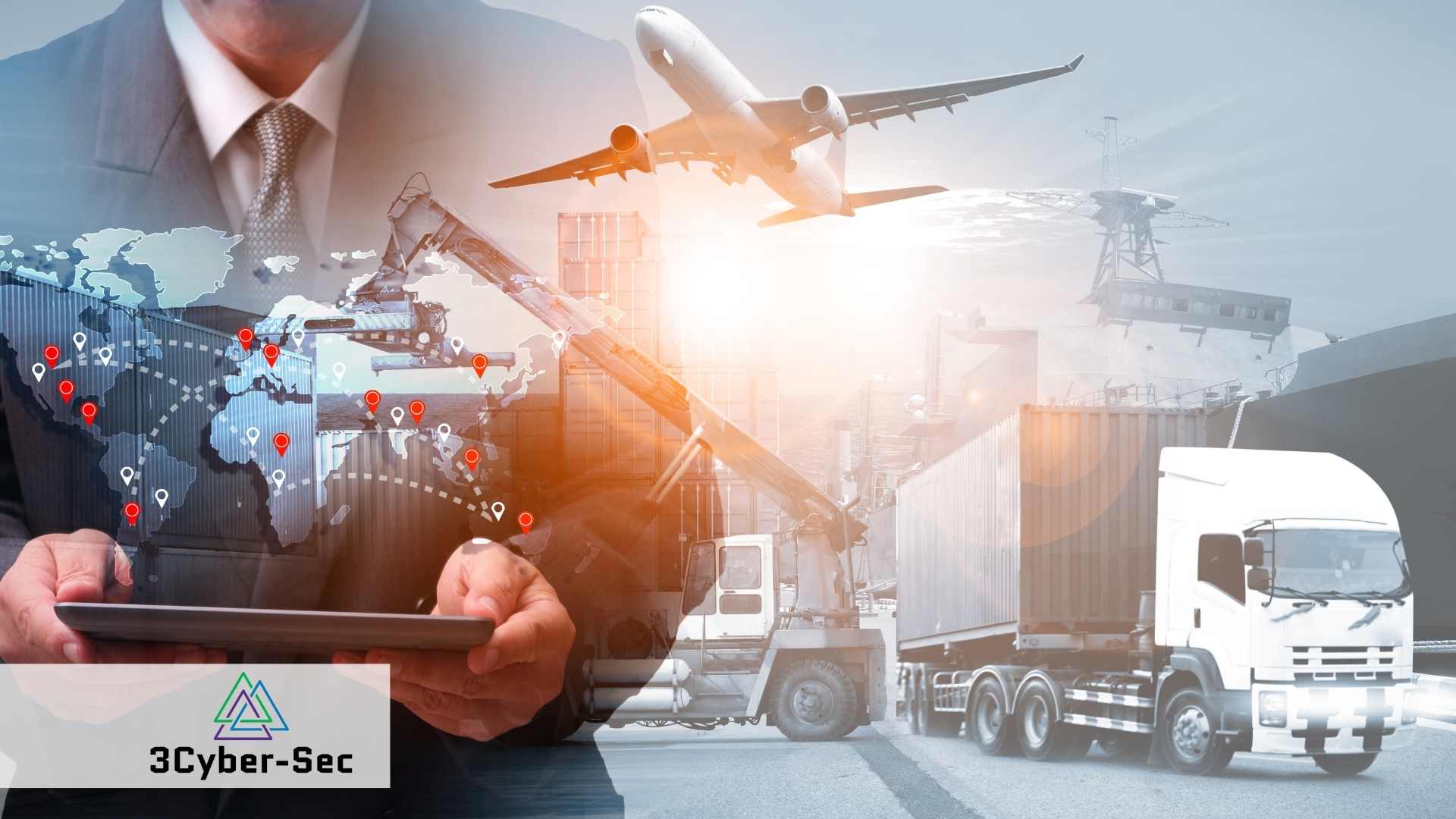The digitization of different parts of the world has utterly altered many industries. The transportation and logistics industry is no exception. Thanks to the ever-growing technology, T&L companies are now able to fill gaps, achieve higher efficiencies, and evolve. However, the reliance on digital solutions and connected technologies also goes hand in hand with a number of serious cybersecurity risks.
To be able to understand cybersecurity in the transportation and logistics industries, it’s essential to examine four different points. First, what type of digital solutions are used in the industry? Second, what are the vulnerabilities and threats that the industry faces in terms of cyber-attacks? What are the resulting risks? And lastly, what can be done to mitigate these risks.
Understanding the digitization of the transportation and logistics industries
No matter whether it’s maritime, rail, logistics providers, package delivery services, or trucking, companies in the transportation and logistics market are exploring different avenues to digitize the industry. And this is completely natural. Thanks to digital transformations, companies can tackle a number of industry-related challenges. Some of the areas that digital solutions can help include process optimization, supply chain management, communication between service providers and clients or between partners, expense control, and customer experience.
Some of the digital trends in the industry include more automation, a higher level of connectivity, cloud computing, big data analysis, AI, and more. A number of interconnected platforms continue emerging as innovative business models in the field, with data-driven strategies dominating the industry. Digital ecosystems enable end-users to receive transparent services and track processes.
While all of the mentioned above is advantageous for the growth of the transportation and logistics industries, it also gives rise to concerns about the cybersecurity of companies who rely on digitization.
Cyber risks and vulnerabilities
Just like in any other industry, there are three core factors that could expose a company to cybersecurity risks – people, technology, and regulation. For example, in a transportation company where traditional systems have been substituted for connected, cloud-powered, local area networks, exposure to cyber-attacks is higher. As a storage point for valuable information like locations, customer data, and other sensitive details, it is naturally an attractive source for hackers.
On the other hand, uninformed or poorly trained employees could compromise the security of a transportation and logistics company. Research unveils that more than 55% of logistics employees feel unprepared to identify a cyber attack. Responses to phishing emails or revealing classified information to untrusted parties may result in severe losses for a company in the industry.
Finally, regulation plays a significant role. Despite the fact that a lot of transportation and logistics practices are regulated, cybersecurity remains neglected today. This is partially due to the fact that the industry is yet to explore the full potential of digital opportunities. Nonetheless, considering the rate at which companies are experimenting with digital solutions, regulations are proving to be insufficient.
Top 6 cybersecurity challenges in transportation and logistics
In a nutshell, here are the most commonly faced cyber threats for companies operating in the transportation and logistics industries:
- Corporate hacking – the theft of sensitive data from businesses in the industry by breaching systems and obtaining control over information.
- Sensor data intercepts – scammer opportunities that arise from the increasing reliance on sensors and IoT in transportation and logistics. Such attacks enable hackers to gain control over data from communications between logistics firms and clients or partners, which can be sold to competitors or taken advantage of in other ways.
- Bill of Lading ransom – a fraud scenario, where scammers act as freight forwarders, set up an arrangement with the victim for the transportation of goods, and once the products are packed and prepared for shipment, disclaim the Bill of Lading. Instead, they ask for a ransom to be paid for the goods to be dispatched.
- Freight forwarding fraud – another popular transportation and logistics cyber threat. It is the act of a malicious organization or individual imitating a legitimate partner or client of the attacked business. The goal is to take control over paid fees, transferred products, or customer details.
- Phishing attacks – phishing emails are extremely popular in the logistics industry. And it’s no secret that more than 90% of cyber attacks start with a phishing email. Phishing attacks occur when a hacker contacts a business via email, phone, or text message to represent themselves as a legitimate person. The ultimate objective of the communication is to trick the victim into revealing sensitive or login information or to click on a malicious attachment or link.
- Ransomware – under this form of attack, hackers penetrate the IT framework of an organization and gain control of the whole system. As business owners, managers, and owners no longer have access to their data, the only way to restore control is to pay a ransom.
Preventing cyber-attacks
Cybersecurity attacks may cause long-term, irreversible damage to any organization. This is why prevention is key for protecting your transportation and logistics company. There are a multitude of solutions that you can take advantage of. You could rely on a pre-made security system or choose to work with a partner to design custom-made security software for maximum protection. In addition, it’s important to train all employees and involved parties to detect scams quickly and understand what actions they must take to ensure the security of the company.
At 3Cyber-Sec, we provide bespoke security services, compliance services, and expert consultations. We can help you detect the weak spots within your existing system and offer solutions aimed at strengthening your security and ensuring your data remains in your control.


